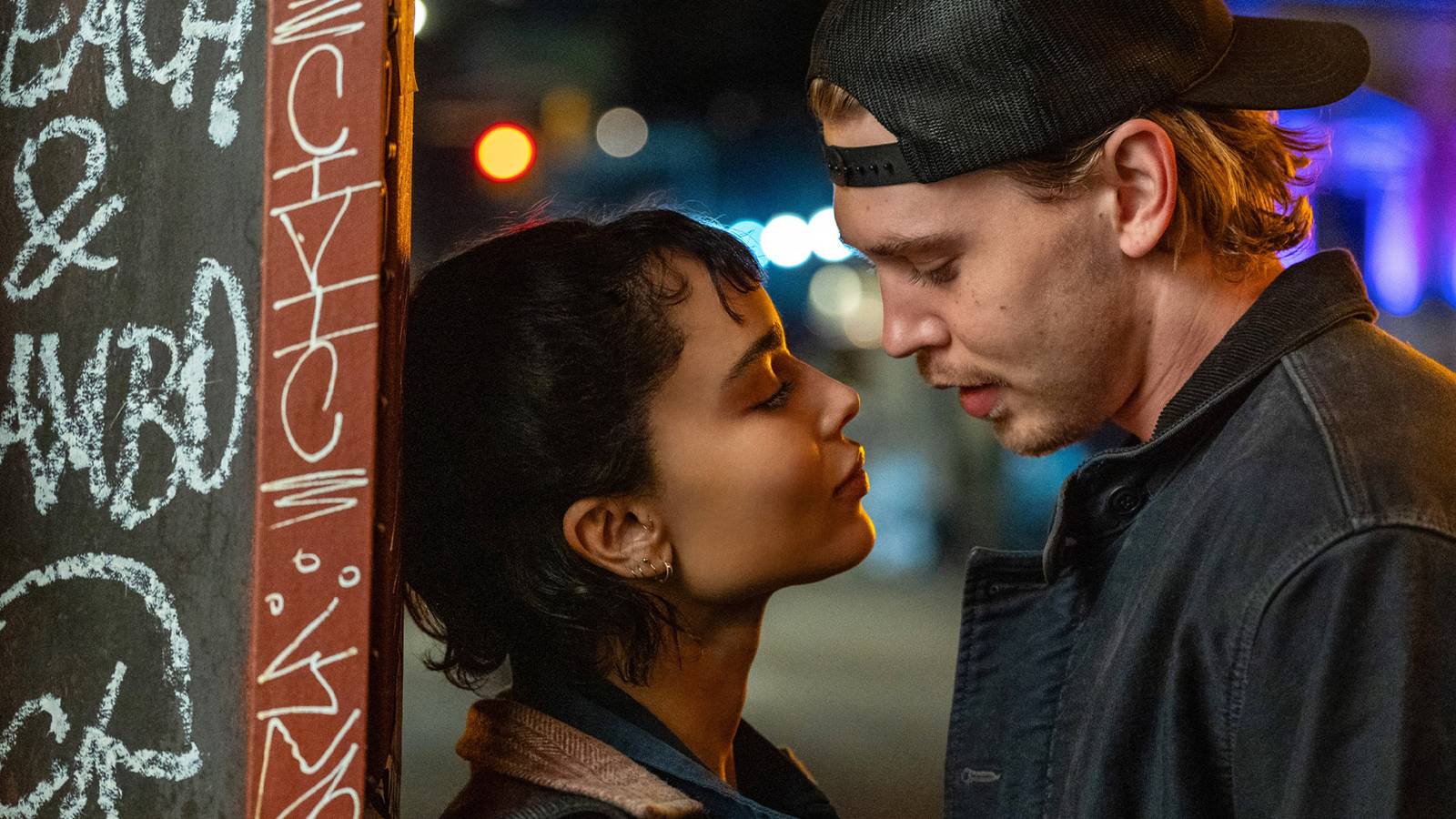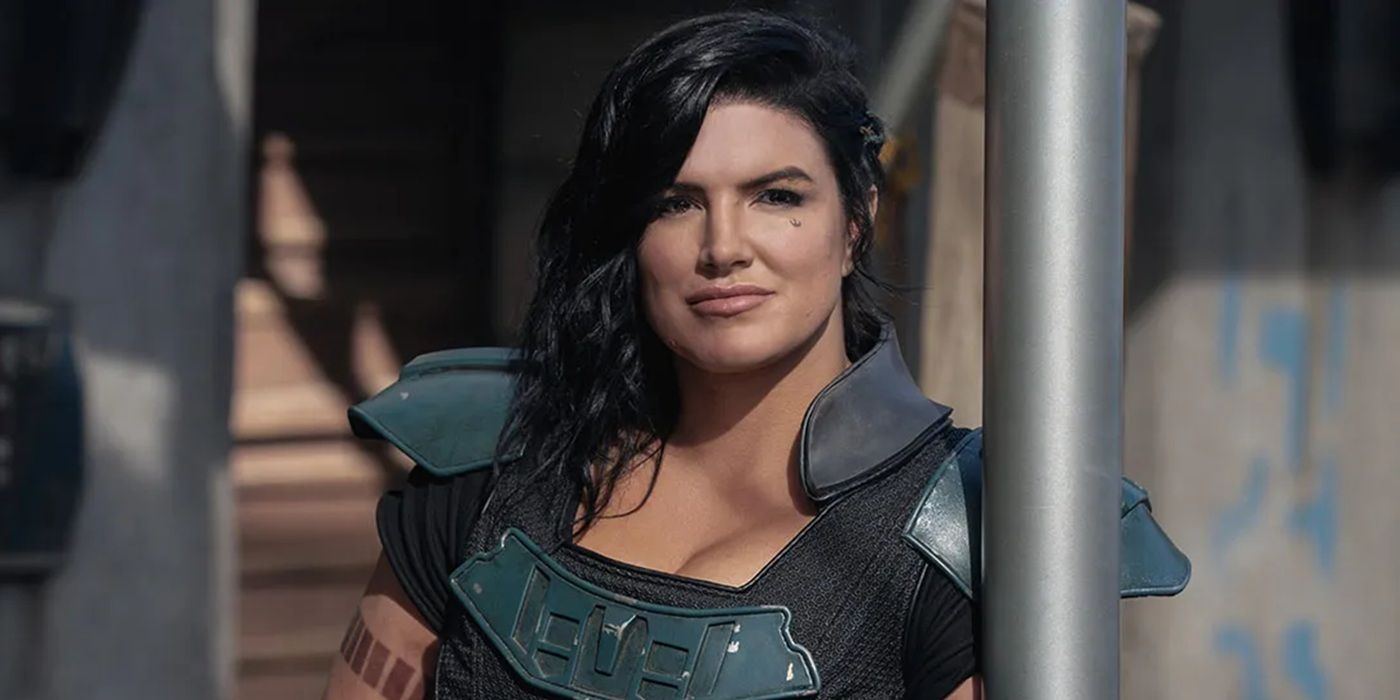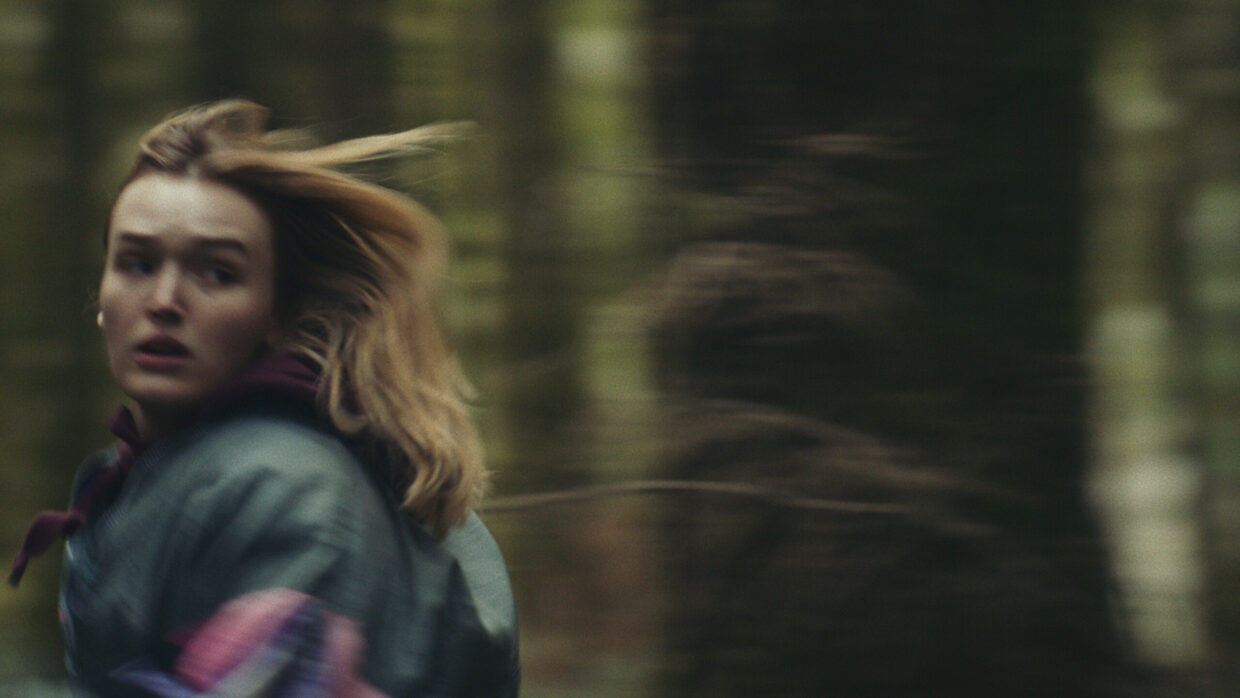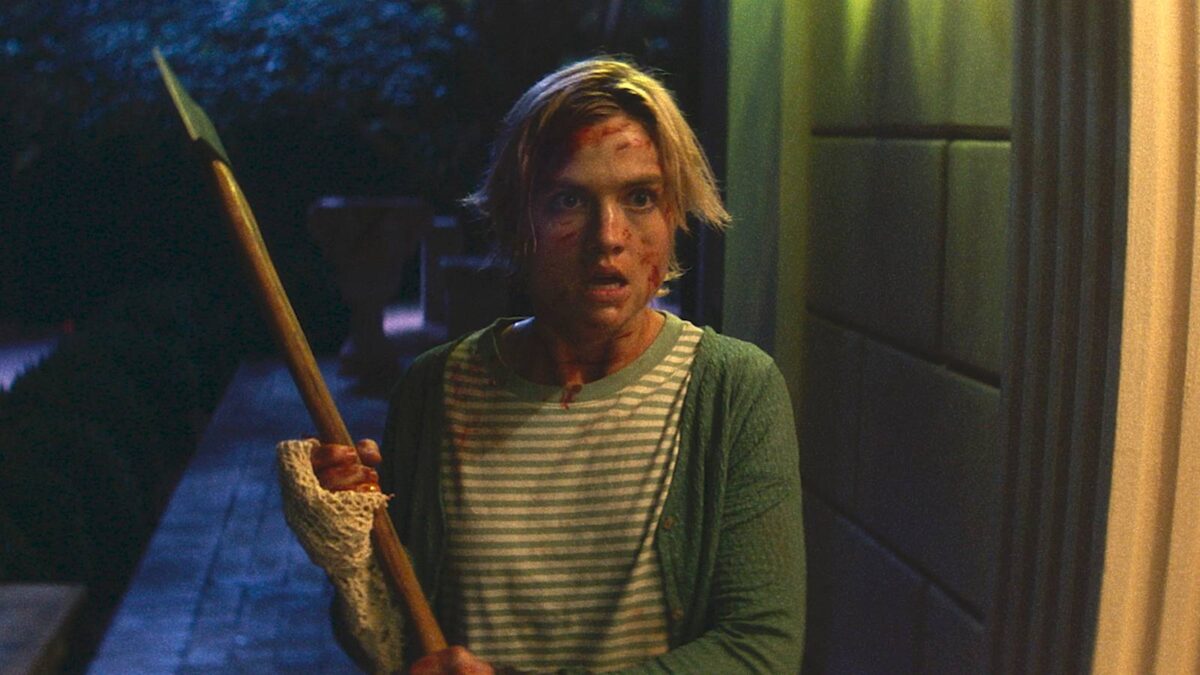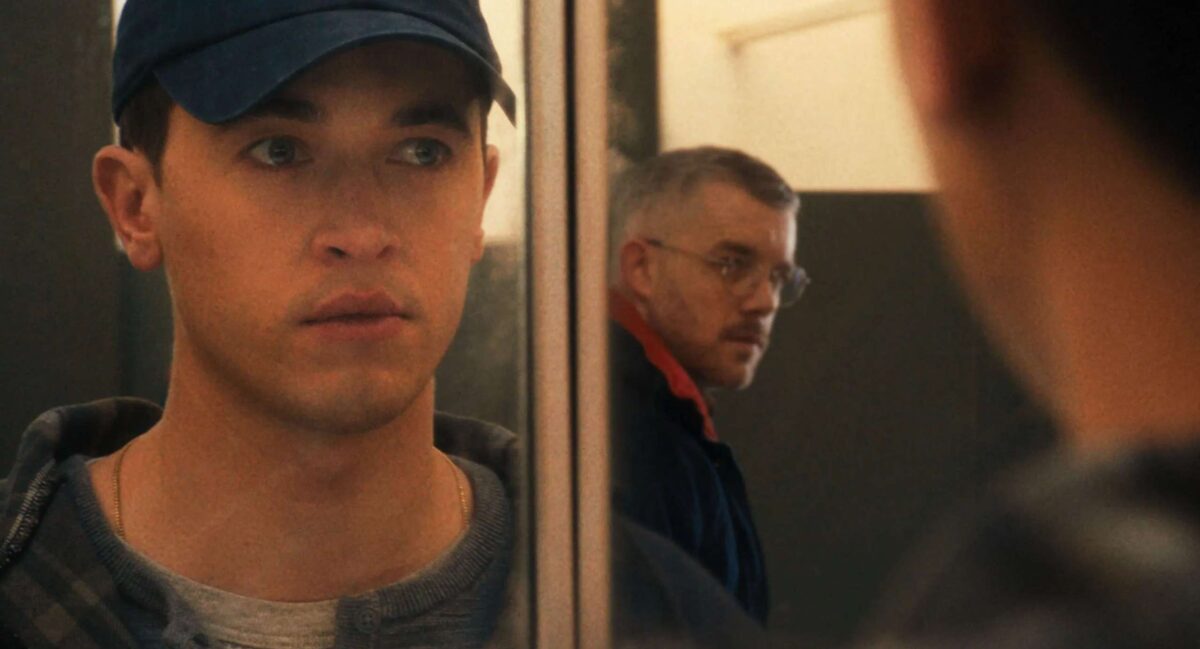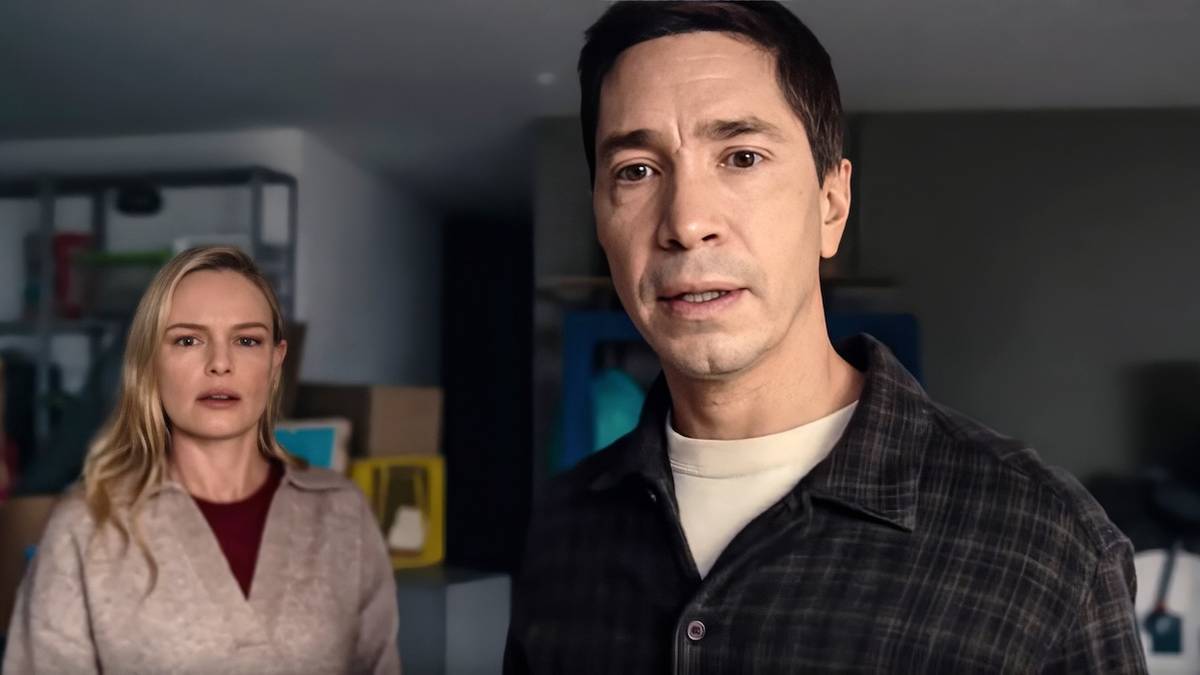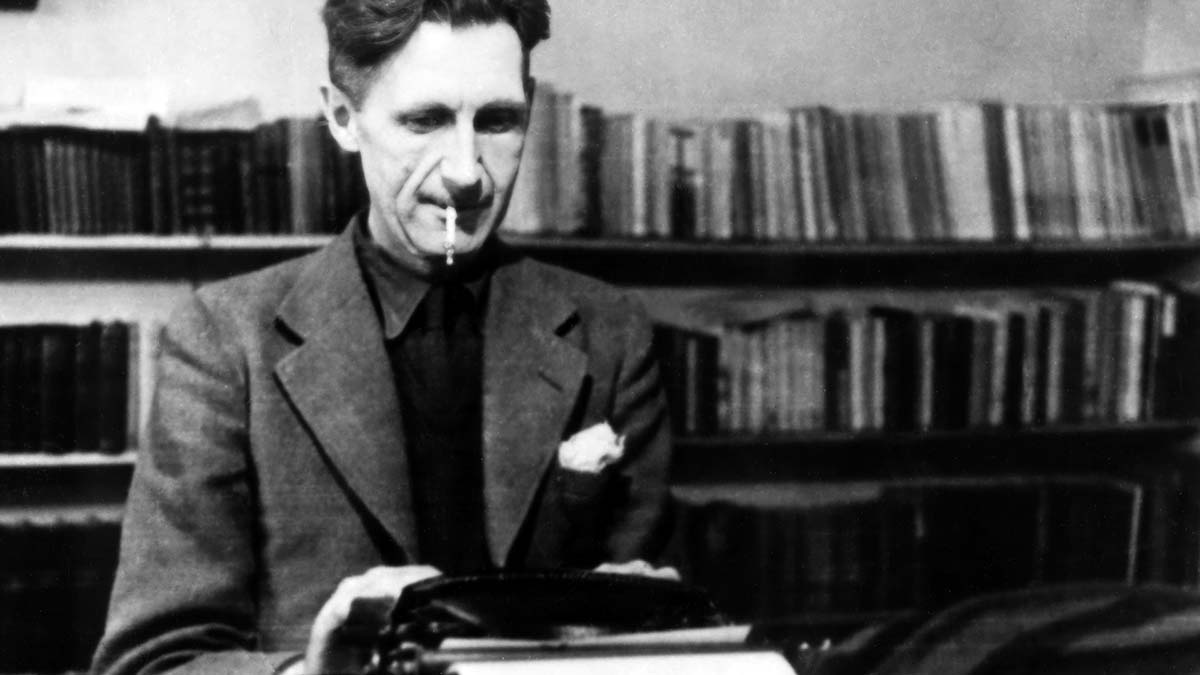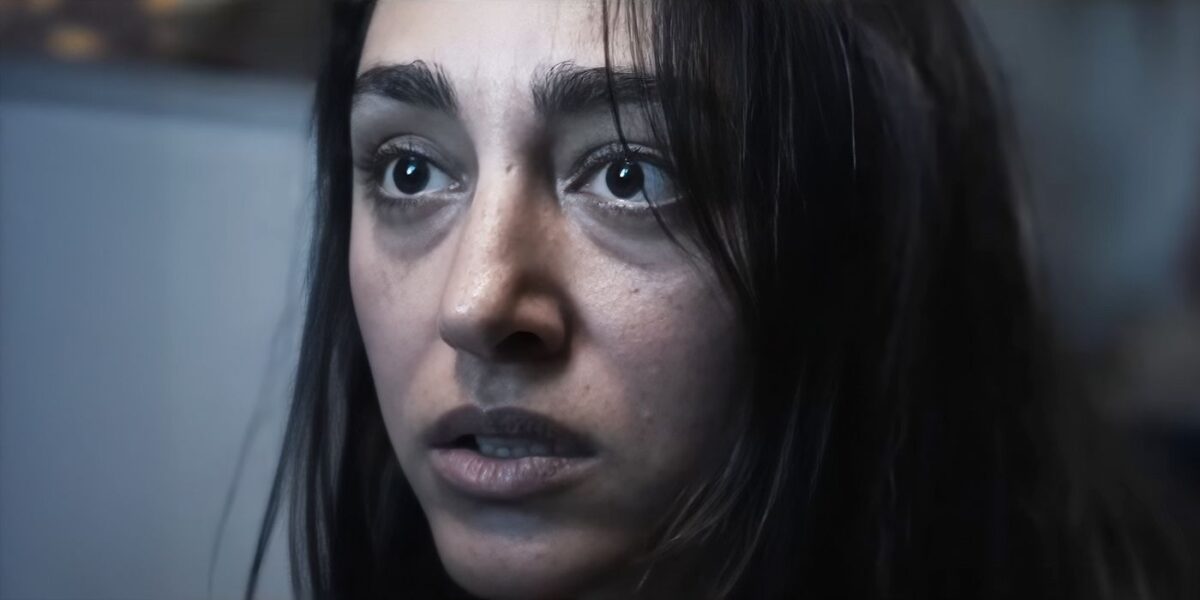
‘Alpha’ Review: I Think Julia Ducournau Just Locked in Another Palme d’Or
May 20, 2025
In the time of post-COVID, many filmmakers and storytellers are utilizing their experiences during the pandemic in their stories. Just at Cannes this year, we’ve gotten a couple, including Ari Aster’s political satire Eddington. However, it’s Julia Ducournau who perfectly captures the suffering, anxiety, and hopelessness that comes with a deadly virus and the toll that it takes not only on the patient but the family members who stand to lose someone they love.
Alpha tells the complicated story of a 13-year-old girl named Alpha (Mélissa Boros) and her mother (Golsifteh Farahani) as they bring in Alpha’s uncle, Amin (Tahar Rahim), a man struggling with drug addiction. After Alpha accidentally gets a poke-and-stick tattoo at a party, her mother becomes terrified that the dirty needle used to give her the tattoo could have infected her with a deadly virus that slowly turns people’s bodies into marble. What follows is a story that braids themes of love, heartbreak, and grief with delicate dedication, leaving you in awe of not only Ducournau’s storytelling prowess but the vast scope of potential that’s possible with her craft.
Julia Ducournau Steps Away From Body Horror and Embraces Something More Personal
If Julia Ducournau’s name isn’t familiar to you, you might be more familiar with her Palme d’Or-winning film Titane. Thanks to Titane and her directorial debut, Raw, you wouldn’t be wrong to assume that her calling card is body horror. However, Alpha deviates from this pattern drastically, and that is to the film’s benefit. Instead, the fear of body dysmorphia doesn’t exist externally as much as it does internally. The deadly, unnamed virus that is sweeping the nation slowly turns people into beautiful marble statues. The process is painful, and there is no cure. However, there’s nothing grotesque really about the transformation. The horror lies in the fear of catching a disease for which there is no cure and suffering a slow and agonizing death.
Ducournau’s camera is still vitally aware of the human body as it closes in on the veins and skin of Amin, tracing the camera up his arm as young Alpha connects the dots of his track marks like a constellation. An older Alpha, now 13, fears that she might have contracted the virus, and she slowly experiences the painful process of being ostracized and bullied by her classmates, who see her more like she’s a walking plague rather than a human being. Even her close friends fear her despite the fact that it doesn’t seem like the virus is easily contagious. The only comfort she finds is in her mother’s arms.
Her mother, a doctor and someone who experienced the height of the virus firsthand, is horrified that her daughter might be sick while worrying about her brother’s detox at the same time. She’s a weary woman who carries the weight of the world on her shoulders but never crumples under the crushing responsibility. As she juggles taking care of both Alpha and Amin, it becomes clear that although she is a natural caretaker, the burden of looking after a loved one is weighing on her heavily.
‘Alpha’ Takes an Artful and Subtle Look at the Pandemic’s After Effects
Image Via Diaphana Distribution
What quickly becomes obvious while watching Alpha is that this is not your typical pandemic movie. I’d expect no less from Julia Ducournau. While there are familiar beats that we’ve now seen in multiple films and medical dramas — from hospital beds full of the sick and dying to overcrowding patients and loved ones desperate to receive care — Ducournau is not really commenting on the pandemic overtly. She isn’t pointing any fingers; instead, she turns the proverbial camera inward. The film operates on two separate timelines. One when Alpha is five years old, and one when she is 13. These two storylines show us not only the peak of the viral pandemic, but also the years after, where the fear is still very much present and has become endemic in the population.
Related
‘Titane,’ ‘Raw,’ and the Frightening Power of Physical Metaphor
Julia Ducournau brings the blood, guts, and big feelings.
The film takes a look at home remedies and superstition in Alpha’s maternal family and compares it to medical science and evidence-based medicine that her mother believes in. This isn’t a large part of the story, but it adds to the delicate infrastructure of the film that slowly unveils what happened in the past and how it affects the present. The themes of maternal love and familial love become the backbone of Alpha. As Alpha grows closer to Amin, she learns not only about the sacrifices that her mother has to make but also is exposed to the reality of addiction. Considering Alpha herself got the tattoo while she was high and had to be taken home by her friends while still incapacitated, Amin is a reflection of her potential future.
‘Alpha’ Thrives Thanks to Its Leading Performances and Character Chemistry
Image Via Diaphana Distribution
Ducournau’s story is brilliant, but without the leading actors of the film, the movie wouldn’t have been nearly as impressive. The titular Alpha is played by the young Mélissa Boros, and she is at the core of the coming-of-age story. Boros plays Alpha with all of the petulance and independence of a 13-year-old girl. She’s defiant, rebellious, and can be quite childish (naturally, given her age). That all benefits the story, as she is our primary point-of-view character, and as the film continues, and the walls between the two timelines deteriorate, we are centered by her presence. She is our constant, and while the pieces come together, still leaving quite a lot of ambiguity for the viewer about what is the truth and what is false, Boros becomes our lodestone.
At the same time, Golsifteh Farahani’s Maman (she is never properly addressed by name) stands both as the starpower behind the film as well as its emotional center. Through Farahani’s performance, we understand the heartache and the fear that grows inside of every parent when their child could be sick and inside every person who struggles with an addict in their immediate family. Farahani never portrays Maman as manic or angry; she’s got the patience of a saint and an endless fount of love for her family. However, this isn’t necessarily lauded. Her unflinching love and constant willingness to forgive are pointed out clearly by Amin, who says that “too much love makes people crazy.” The character doesn’t punish those she loves, but she punishes herself, searching for cures, becoming a constant caretaker, and, when something bad happens, taking it into her literal hands to solve the problem.
The wild card of the story is Amin, played brilliantly by Tahar Rahim. It’s hard to say which scenes are better, Rahim’s quiet interactions with Farahani or his moments with Boros, where he is able to deal her a dose of reality and hard truths that her mother isn’t able to say. His scenes keep us on our feet as we try to deduce the mystery of what happened to him in the past and how his presence affects Alpha and her mother in the present. While most films have one standout performance, Alpha is so dependent on the scene partners working together that it’s hard to shower praise on just one person. Rahim, Farahani, and Boros all share the spotlight, and their chemistry mixed together is what makes Alpha gold.
‘Alpha’ Ends With Ambiguity, Forcing You To Think and Even Requiring a Second Viewing
Poster Image from Alpha, featuring Mélissa Boros as Alpha
The one flaw of Alpha could also be one of its strengths. As the story spirals out, what is true and what is imagined becomes harder to tell apart. Ducournau utilizes different color grading and costuming to separate the two timelines, but as they blend together, the story becomes more and more opaque. When I finished the film, I almost instantly wanted to rewatch it to see if I could catch more details that I might have missed. Some of the confusion lies in the fact that there are a lot of moving parts. The story isn’t just about Alpha and her family, but also about her experience at school. Her relationship with her classmates and her potential love interest, Adrien (Louai El Amrousy), ultimately weighs down the story. It adds to the narrative about Alpha’s slow othering at school, but it stands as one of the weaker subplots nonetheless.
Still, Ducournau paints a beautiful picture with Alpha, one that leans heavily into drama without dipping into familiar territories of horror or thriller. Her clever use of heart-pounding music mixed with an eye for detail is almost cerebral, but her emotional anchor is always the narrative. With Alpha, Ducournau just revealed a new layer of her filmmaking style, and not only is the film the most compelling thing to come out of the Cannes Film Festival so far, but it’s a sign that she is far from a one-trick pony.
Alpha
Julia Ducournau turns a new leaf and gives us a powerful and emotional family drama set during a pandemic.
Release Date
August 20, 2025
Runtime
128 minutes
Director
Julia Ducournau
Pros & Cons
Ducournau blends two timelines seamlessly and melts them together to create an intriguing and unique film.
Leading performances by Mélissa Boros, Golsifteh Farahani, and Tahar Rahim are what make the film so good.
Ducournau’s close-quarters camera work blends perfectly with strong sound mixing and musical cues.
The other subplots end up confusing the main storyline more than they support it.
Publisher: Source link
Erotic Horror Is Long On Innuendo, Short On Climax As It Fails To Deliver On A Promising Premise
Picture this: you splurge on a stunning estate on AirBnB for a romantic weekend with your long-time partner, only for another couple to show up having done the same, on a different app. With the hosts not responding to messages…
Oct 8, 2025
Desire, Duty, and Deception Collide
Carmen Emmi’s Plainclothes is an evocative, bruising romantic thriller that takes place in the shadowy underbelly of 1990s New York, where personal identity collides with institutional control. More than just a story about police work, the film is a taut…
Oct 8, 2025
Real-Life Couple Justin Long and Kate Bosworth Have Tons of Fun in a Creature Feature That Plays It Too Safe
In 2022, Justin Long and Kate Bosworth teamed up for the horror comedy House of Darkness. A year later, the actors got married and are now parents, so it's fun to see them working together again for another outing in…
Oct 6, 2025
Raoul Peck’s Everything Bagel Documentary Puts Too Much In the Author’s Mouth [TIFF]
Everyone has their own George Orwell and tends to think everyone else gets him wrong. As such, making a sprawling quasi-biographical documentary like “Orwell: 2+2=5” is a brave effort bound to exasperate people across the political spectrum. Even so, Raoul…
Oct 6, 2025



